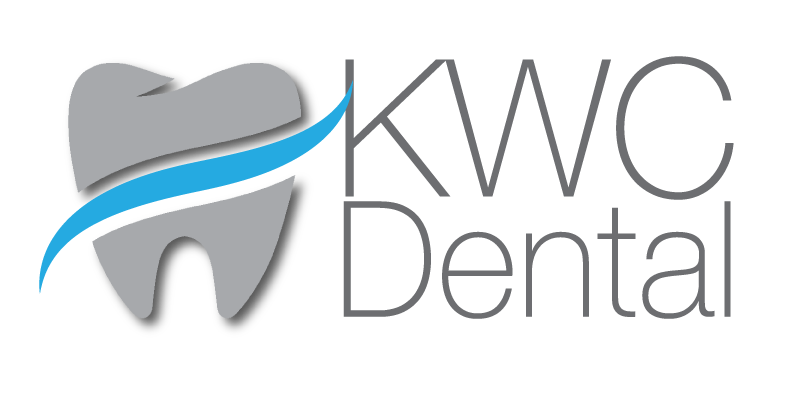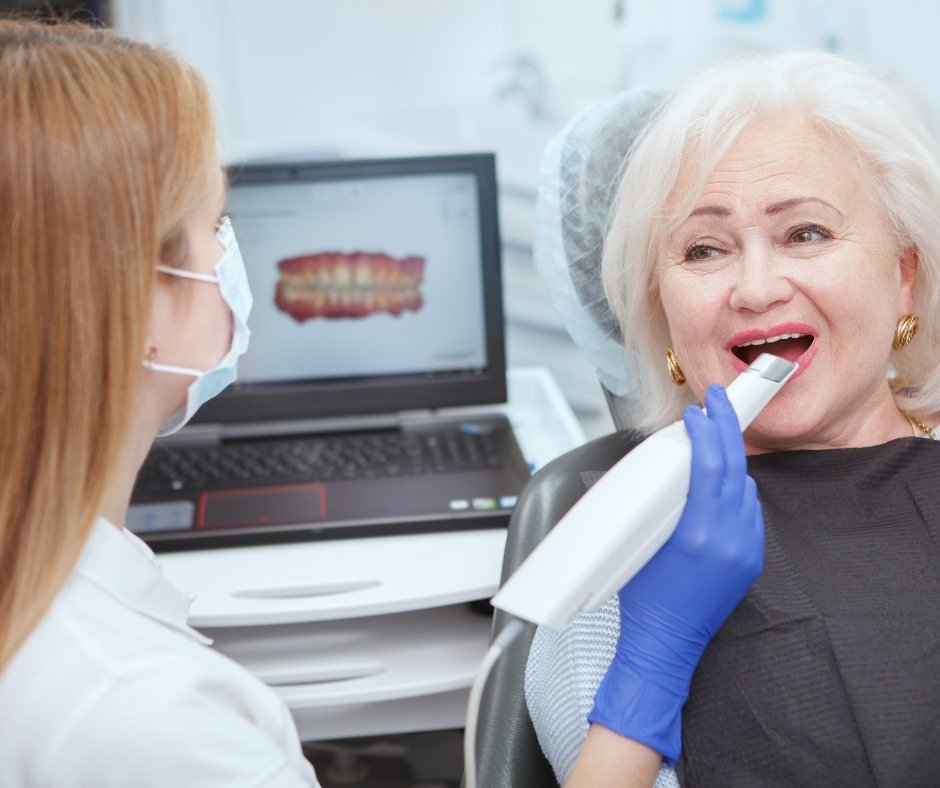Oral Care For the Elderly: A Guide for Caregivers
People who commit to taking care of older people have various challenges. One of those challenges is oral care for the elderly.
As people age, many health-related uncertainties creep on them. Therefore, for caregivers, whether paid or unpaid, it is important to know about dental diseases.
When providing oral care to seniors, you can teach the care receiver some tips as you go along.
To give you information on the possible dental challenges and maintaining an oral care routine for the elderly, we have written this guide.
Related Blog: Addressing Dental Concerns in Aging Loved Ones
Dental Care for Seniors: 9 Common Oral Health Issues
To perform oral care for the elderly, you must first know the dental health concerns.
These are the problems that you should know to provide proper dental care for seniors:
1.Teeth Turning Dark
When offering oral care for the elderly, you may notice that their teeth are darker than those of young individuals. A lifetime of ingesting foods and drinks that cause stains and alterations in dentin.
Even though it's common knowledge that appearances improve with age, teeth stains are among the least desirable physical changes that occur as one ages.
With age, the enamel on the teeth thins and reveals the dentin, the yellow-coloured tissue in the center of your teeth. After several years, the dentin also naturally turns yellow.
Additionally, teeth stains may gradually worsen over time due to years of consumption of tea, coffee, dark drinks, and alcohol.
Also, discoloration brought on by dental traumas or damage that develops throughout a lifetime can become apparent as you age.
A dentist should examine teeth that have become discoloured to check if they indicate a more serious issue.
2.Dry Mouth
The sensation of having insufficient saliva in the mouth is known as dry mouth. Dehydration occurs when the body loses more fluid than it takes in, and the adverse effects of several drugs are common reasons for dry mouth in the elderly.
It may be difficult to chew, swallow, or even speak with a dry mouth.
Since saliva helps keep hazardous microorganisms in check, having less saliva also raises the risk of fungal infections or tooth decay in the mouth.
If the mouth is dry, dentures may become uncomfortable and may not fit as well. Insufficient saliva makes the uncomfortable places from dentures rubbing on the roof of the mouth or gums.
It's critical to understand that dry mouth is not a natural aspect of aging. On the other hand, a lot of older persons use drugs that may cause dry mouth, and taking multiple medications at once can exacerbate dry mouth.
For instance, medications used to treat depression, high blood pressure, and issues with bladder control may be the reason for this.
It has also been related to autoimmune illnesses, diabetes, stroke, and Alzheimer's disease.
However, to provide oral care for the elderly, altering the prescription regimen without consulting your doctor shouldn't be the case.
3.Sensitivity
Dry mouth and sensitive teeth are two dental issues that many older persons deal with on a regular basis. You may need to wear a mouth guard at night if you grind your teeth while you sleep because this can also lead to sensitivity.
4.Receding Gums
It is a common reason, exposing more of the tooth's root.
Gum recession lets acid and dental plaque reach the roots of your teeth. It is challenging to cure and prevent root decay.
5.Root Decay
It is significantly increased when many chronic diseases or disorders are present, a condition known as comorbidities. Comorbid diseases like diabetes, heart disease, and rheumatoid arthritis are more common among seniors.
Root decay and other dental health problems are associated with an increased incidence of certain illnesses and ailments. To take care of oral care for the elderly, inform your dentist of any comorbidities.
6.Oral Stomatitis
Candida is a type of yeast or fungus that causes denture stomatitis. Since everyone has some candida in their mouths, it is not an infection that we contract or spread to others. It causes redness, inflammation, and swelling in the mouth.
Those who use dentures and those who struggle with oral hygiene are more likely to be affected. Individuals with diabetes and those who use oral or inhalation steroids may also experience problems.
There are certain antibiotics that cause thrush. Many patients discover that using some antibiotics, especially over an extended length of time, promotes the infection to return.
7.High Intake of Sugary Items
An abundance of sugar in the diet may encourage the growth of bacteria that damage the tooth roots.
Sugary meals have a tendency to adhere to teeth and serve as a breeding ground for bacteria.
Cavities and pulp infection may happen due to overconsumption of sugar. This illness can lead to tooth loss and root damage if left untreated. Controlling this is a crucial part of oral care for the elderly.
8.Uneven Jaw
It happens when the mandible, lower jaw, and maxilla, or upper jaw, are not properly aligned. There are several possible causes for this, such as dental misalignment, problems with the temporomandibular joint, trauma, and birth abnormalities.
This ailment can cause pain in the jaw and temples and cause difficulty swallowing or chewing. The severity of the condition varies. It may have an effect on mental health and contribute to tooth loss and decay.
The use of dental equipment, specific surgical procedures, and pain and inflammation control are all treatments for misaligned jaws.
9.Oral Cancer
The majority of patients diagnosed with oral and pharyngeal malignancies are older adults; the median age at diagnosis is 62 years old.
After knowing which one of these problems you are dealing with, oral care for the elderly becomes easy.
Oral Examination For Oral Care For the Elderly
If you want to ensure you are giving the best shot at oral care for the elderly, take the patient for an oral examination.
The dentist will examine the following during an oral examination:
Teeth for decay, filling condition, and cracks
Bite to find issues with the way your teeth fit together
Inner cheeks for sores, ulcers, or traumatic injuries
Tongue and other interior surfaces for signs of infection or oral cancer
Jaw for temporomandibular joint clicking and popping
The face and neck to check for sores, discoloration, or moles
Lymph nodes and salivary glands for any swelling or lumps
Your dentist will inquire about when the care receiver wears and takes out your dentures and the other oral appliances.
They will also check if the denture or appliance is damaged and look for any irritation or issues in the mouth areas that the appliance contacts.
4 Steps for Oral Care For the Elderly
The simple actions that support oral care for the elderly are:
1.Rinsing the Mouth
To remove food particles, make sure the care receiver uses plain water before brushing.
Making them rinse their teeth again after brushing with an over-the-counter, fluoride-containing mouthwash that is alcohol-free helps prevent tooth decay.
Certain products may lessen tooth sensitivity.
For dental care seniors, you can search for a mouthwash that manages plaque, gingivitis, foul breath, or dry mouth.
2.Brushing the Teeth
When you are responsible for oral care for the elderly, make sure they brush for a minimum of two minutes twice a day.
Some people may have dementia, making them forget to brush their teeth.
Pick toothpaste with the American Dental Association's (ADA) Seal of Acceptance, which attests to the fluoride it contains, which fights plaque and decay.
Toothpaste is available as powder, gel, or paste. All kinds of toothpaste have the same basic ingredients, but there may be some variations in humectants, flavourings, thickening agents, and mild abrasives.
Certain products may include other chemicals that may lessen tartar accumulation or dental sensitivity, stop enamel erosion, or whiten teeth.
If you are providing oral care for the elderly with gripping issues. Ask them to invest in grip aids that slide over the brush handle.
It is great for people with arthritis who find it difficult to hold a toothbrush or to reach their back teeth.
An electric toothbrush is an additional choice for oral care for the elderly. The vibrations of the brush can produce more strokes than the hand movements.
These toothbrushes support oral care for the elderly because you can set the timer. Because of that, you won't feel the need to watch the patient as they brush their teeth for two minutes.
3.Flossing Before & After Brushing
Try to floss more than once daily, if possible, preferably after a meal, to reduce bacteria buildup in the mouth.
You can give the patients waxed or unwaxed floss. However, waxed floss may be simpler to use for those with very tight teeth; both types of floss function in the same way.
Tell them to slide it up and down the tooth numerous times, starting at the gum line. Moving it back and forth is the best motion to clean the teeth.
If you perform oral care for the elderly, they may complain about irritation in the gums.
It doesn't imply that they should stop flossing. As it may be because of friction, ask them to be gentle.
You can also try over-the-counter devices like dental picks, floss picks, and pre-threaded flossers. There are tiny brushes that fit between teeth and are particularly useful for getting under crowns and bridges.
Water flossers are good for dental care for seniors if regular flossing is too difficult for you.
4.Cleaning the Denture
The general rule of denture cleaning is to brush and soak each day.
First, brush your dentures to get rid of any food particles. Instead of toothpaste, use a non-abrasive denture cleaning.
Take care not to clean the surface too vigorously, as this could leave surface grooves.
Don't forget to brush the dentures' whole surface, especially the part that touches your gums. This is particularly crucial if you use any type of fixative for your dentures.
Each day, immerse your dentures in a denture-cleaning solution. This will assist in getting rid of any remaining plaque and tough stains. Additionally, it will help to clean your dentures, giving them a fresher scent.
If there are any metal components on the denture, use chlorhexidine rather than anything that contains bleach. Chlorhexidine stains dentures; avoid using it daily. Apply it once a week is sufficient for oral care for the elderly.
Financing Options For Oral Care for the Elderly
Many dentists provide their services at discounted prices to seniors on low or fixed incomes who cannot afford regular dental care.
Since assistance programs differ from town to community, find out about these plans from your trusted dental care facility.
Additionally, look up information on your local dental society, phone book, or internet.
Read More: Canada Dental Benefit for Adults: Making Dental Care in Canada Affordable
FAQs
What is an important step for maintaining oral care for the elderly?
Setting up routine dental exams will assist in gaining general control over oral health.
Is gum disease prevention possible with good oral care for the elderly?
Gum disease can be delayed by adopting good habits, including cleaning your teeth at least twice a day, using fluoride toothpaste, flossing, drinking more liquids, and consuming fewer foods that are very salted and dry.
Is it possible to prevent root decay with oral care for the elderly?
Elderly people who want to avoid cavities should visit their dentist regularly. Root canal therapy and professional dental cleaning are common treatments for root decay.
Summary
People may lose focus on maintaining good dental hygiene when more serious aging-related illnesses arise.
Dental and general health are linked, so it also calls for specialized care.
Therefore, the job of a caregiver is to provide oral care for the elderly to promote general health.
While physical aging cannot be completely reversed, we can always prevent oral health problems with the help of a professional.




